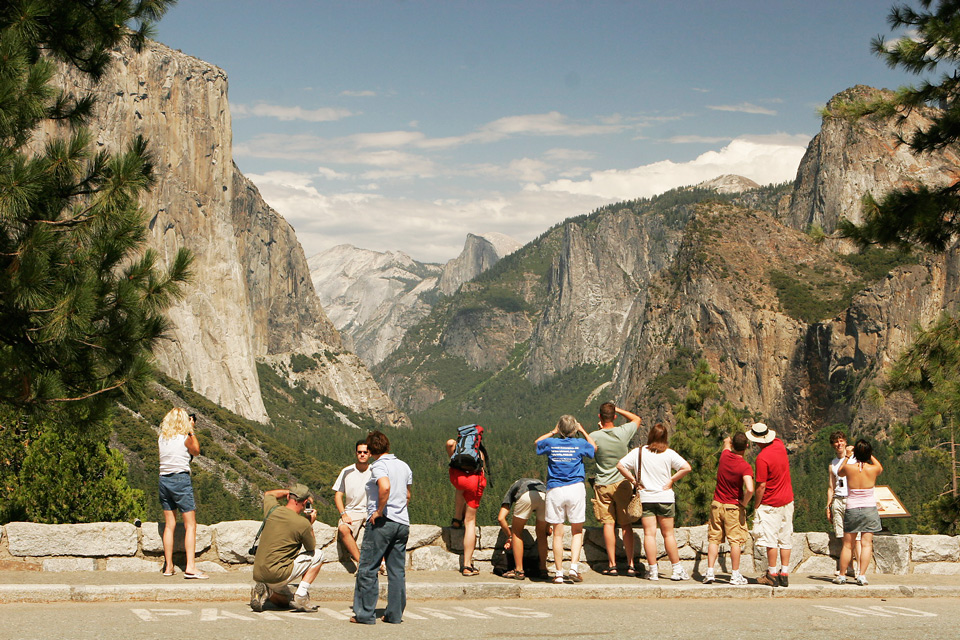
Yosemite National Park
Sierra Sun Times file photo
September 30, 2025 - Washington, D.C. – As Congress approaches the end of the fiscal year without a bipartisan agreement to fund the government, the Outdoor Recreation Roundtable (ORR) is warning of the significant and lasting damage a shutdown would have on America’s $1.2 trillion outdoor recreation economy, its 5 million-strong workforce, and the hundreds of thousands of businesses and rural communities that rely on access and certainty.
“The administration and lawmakers on both sides of the aisle must do everything in their power to avoid a government shutdown,” said Jessica Turner, President, Outdoor Recreation Roundtable. “Shutdowns—and even the threat of them—harm the outdoor recreation economy, close off public lands and waters, and inflict financial hardship and uncertainty on businesses, workers, and local communities who are already dealing with numerous challenges.”
Shutdowns Are Disruptive, Costly, and Avoidable
A government shutdown—potentially paired with federal staffing cuts or reductions in force—would have immediate and widespread consequences across the outdoor recreation sector:
-
Impacts to Businesses and Economy: The outdoor recreation economy contributes $1.2 trillion annually and supports 5 million jobs. Outdoor recreation has grown 36% in real terms since 2012. Shutdowns cut into this growth and those losses can’t be recovered as these businesses and gateway communities are not paid back.
-
Impacts to Local Communities: According to new data released by the National Park Service, national park visitor spending alone contributed $56 billion to the U.S. economy in 2024. Small towns, particularly those in rural areas, that depend on public land visitation lose vital revenue, putting jobs, healthcare, housing, and childcare further at risk.
-
Impacts to Land and Water: Without staff, trash piles up, basic maintenance halts, permits aren’t issued, and clean-up costs increase—risking long-term harm to our natural resources and wildlife. Additionally, important projects like those supported by Great American Outdoors Act are stalled and cost more to stop and restart.
-
Impacts to Visitors and Safety: Closures and reduced services disrupt long-planned family trips during fall or winter travel season, with safety risks and cascading costs from canceled flights and lodging and the potential these families will not “risk” another trip to our public lands in the future.
-
Impacts to Staff: Furloughs and mass firings create immediate financial harm to federal workers. Local staff, contractors, and even private businesses face financial stress and unpaid bills and often have to halt their spending until a shutdown is resolved.
A Proven Path Forward
The outdoor recreation industry has long supported bipartisan solutions that strengthen conservation and access—like the Great American Outdoors Act and the EXPLORE Act. ORR is calling for that same spirit of cooperation to prevail now.
“Congress must act decisively to avoid a shutdown and adequately fund and staff the agencies that manage and provide access to our public lands and waters—this is essential to the health and wellbeing of the nation,” Turner added. “Short-term fixes aren't enough. We need long-term, reliable funding to ensure certainty for businesses and communities and to support innovation and protect access that drives this thriving sector."
ORR and its members stand ready to work with the policymakers, agency leaders, and other stakeholders to ensure that budget disagreements don’t close the doors to the great outdoors or undermine the powerful economic engine and health benefit that outdoor recreation represents.
ABOUT ORR
The Outdoor Recreation Roundtable is the nation’s leading coalition of outdoor recreation associations representing the more than 110,000 outdoor businesses in the recreation economy and the full spectrum of outdoor-related activities. The most recent data from the U.S. Department of Commerce shows that outdoor recreation generated $1.2 trillion in economic output (2.3% of GDP), 5 million jobs and comprises 3.1% of U.S. employees.
Source: ORR



